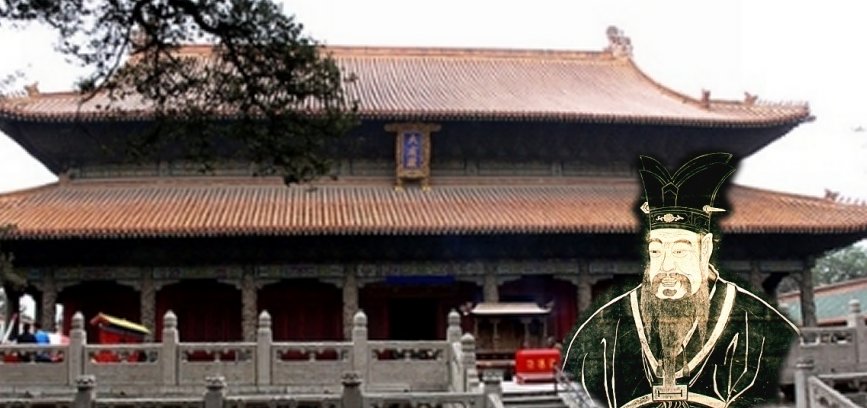Confucius: Philosopher, Educationist And Great Intellect With A Noble Morality
AncientPages.com - Today, it is time for another great man of ancient times and the most important figure in the Chinese history - Confucius. Better known as Master Kong or Kong Fuzi, in China, Confucius was a fifth-century BC philosopher and thinker, whose influence upon East Asian intellectual and social history is immense.
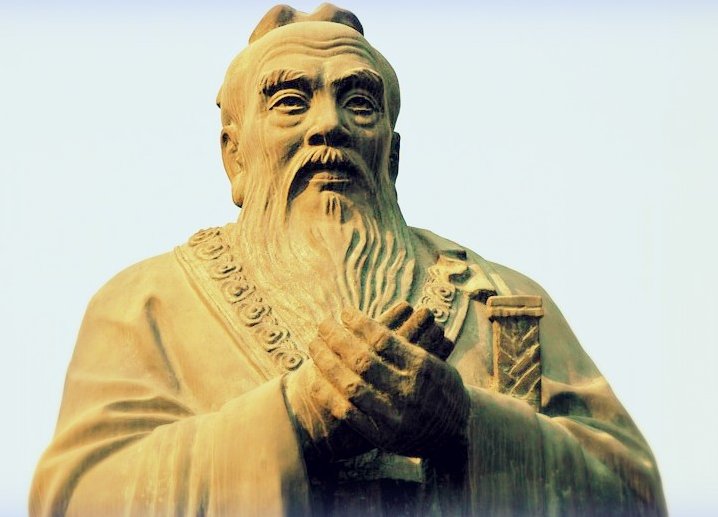
However, he was also a very controversial philosopher and teacher. Much of his approach to education and his ideas were strikingly experimental or in advance of those generally accepted.
He is considered the first great educationist, and his teachings taught in schools, had a great impact on both the past and present Chinese culture; their great power have survived until today.
In his hometown, Confucius established his own school – for both rich and poor students - in order to provide them with the teachings of the ancients. Confucius did not consider himself a ‘creator’ but rather a ‘transmitter’ of these ancient moral traditions. His school taught writing, rules of behavior and basic knowledge.
His teachings were later compiled and became known as Confucianism, which is not about a religion; it is about treating others with politeness, fairness and respect.
He was born in 551 BC in the State of Lu, (known today as Qufu in Shandong Province) in an impoverished aristocratic family. His father was a military officer and died when the son was 3 years old. Mother raised him alone. He knew poverty and endured a poverty-stricken and humiliating youth but despite a hard life, he dedicated himself to study at the age of 15.
In Chinese, his name was Kong Qiu; Kong was the family name while Qiu (meaning "hill") was his given name.
Confucius - an intellect with a noble morality - pursued truth, propriety, righteousness, wisdom, and trustworthiness, kindness and perfection throughout his life and his success and failure were largely due to his character. Some of Confucius’ famous words were:
“Everything has its beauty but not everyone sees it” and “Our greatest glory is not in never falling, but in getting up every time we do”.
Or: “Forget injuries, never forget kindness”.
According to ancient sources, his political career was not successful, but as a teacher and philosopher, Confucius was brilliant and full of achievements.
However, he was also a very controversial philosopher and teacher.
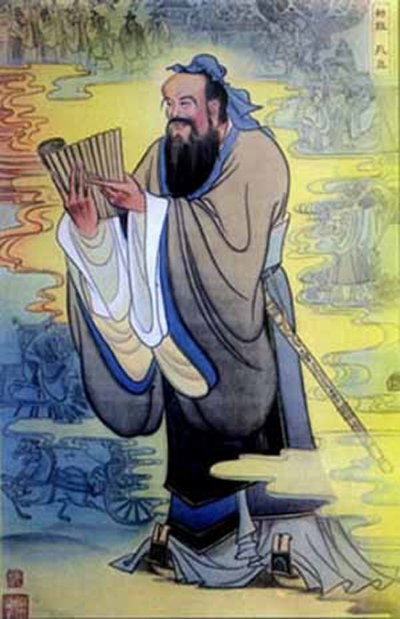 Much of his approach to education and his ideas were strikingly experimental or in advance of those generally accepted.
Much of his approach to education and his ideas were strikingly experimental or in advance of those generally accepted.
For example, he promoted the ideas "to educate all despite their social status" and "to teach according to the students' characteristics".
Especially, the first his idea broke with an old tradition as only the aristocracy had the privilege of education.
He also said, "Studying without thinking leads to confusion; thinking without studying leads to laziness."
Also as a political adviser, Confucius promoted several ‘unpopular’ reforms; he advocated low taxes, he demanded to entrust the leadership to "people noble and learned," regardless of their origin.
From 498 BC (when he was 53 years) many of his disciples began to cover the highest positions in government, Confucius still had a troublesome life and was often starving.
Probably, he did not gather many followers during his life; but there were many of them during the centuries following his death.
Legend has it that when he died, his students mourned him for three years, and the most faithful of them Tzu Kung – a businessman, an accomplished speaker, a good leader, who, probably led his own Confucian school at some point – visited the master’s grave in Qufu for six years saying: "since the beginning of mankind until now there wasn't a man equal to Confucius."
Confucius’ simple, undogmatic maxims are still popular. He argued that the moral sense in man is the equivalent of the cosmic order of nature. He never referred to the supernatural.
What make Confucius so special is that he did not claim that his doctrine comes from divine inspiration or other source inaccessible to ordinary people. Confucianism is not a religion, but rather a system of ethics, learning how to be a good, moderate, socially and ethically valuable man.
His statues became the subject of worship in schools, temples were built in his name and educated people often had (and probably have even today) a tablet of Confucius’ writings displayed in their houses.
The teachings of Confucius - ‘the king without a throne’ and his spirit are still alive.
Copyright © AncientPages.com All rights reserved. This material may not be published, broadcast, rewritten or redistributed in whole or part without the express written permission of AncientPages.com
More From Ancient Pages
-
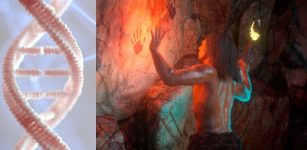 Something Strange Happened To Our Ancestors 900,000 Years Ago – Genetic Study Reveals
DNA | Sep 1, 2023
Something Strange Happened To Our Ancestors 900,000 Years Ago – Genetic Study Reveals
DNA | Sep 1, 2023 -
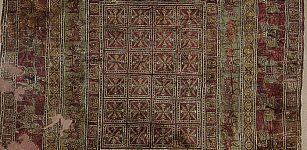 Pazyryk Carpet: Extraordinary Craftsmanship Of Siberian Iron Age Textile Dyers
Archaeology | Mar 5, 2021
Pazyryk Carpet: Extraordinary Craftsmanship Of Siberian Iron Age Textile Dyers
Archaeology | Mar 5, 2021 -
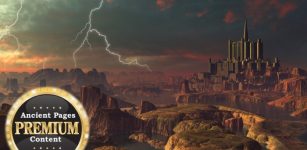 Unexplained Ancient Wars In America – Strange Physical Evidence – Part 2
Ancient Mysteries | Oct 4, 2020
Unexplained Ancient Wars In America – Strange Physical Evidence – Part 2
Ancient Mysteries | Oct 4, 2020 -
 Scientists Search For North America’s ‘Atlantis’ – Submerged Landscapes In The Gulf Of Mexico Studied
Archaeology | Jul 2, 2024
Scientists Search For North America’s ‘Atlantis’ – Submerged Landscapes In The Gulf Of Mexico Studied
Archaeology | Jul 2, 2024 -
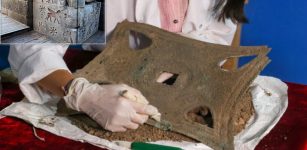 Ornamental Bronze Wall Plate Unearthed In Ayanis Castle Built By Urartian King Rusa II
Archaeology | Sep 13, 2022
Ornamental Bronze Wall Plate Unearthed In Ayanis Castle Built By Urartian King Rusa II
Archaeology | Sep 13, 2022 -
 Cretaceous Fossil From Antarctica Reveals Earliest Modern Bird
Fossils | Mar 6, 2025
Cretaceous Fossil From Antarctica Reveals Earliest Modern Bird
Fossils | Mar 6, 2025 -
 On This Day In History: Powerful And Controversial Roman Emperor Frederick II Excommunicated – On Sep 29, 1227
News | Sep 29, 2016
On This Day In History: Powerful And Controversial Roman Emperor Frederick II Excommunicated – On Sep 29, 1227
News | Sep 29, 2016 -
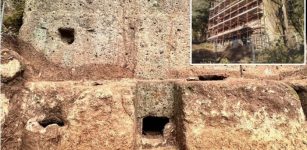 Who Is Buried In The Giant Etruscan Tomb At San Giuliano Necropolis?
Archaeology | Mar 13, 2024
Who Is Buried In The Giant Etruscan Tomb At San Giuliano Necropolis?
Archaeology | Mar 13, 2024 -
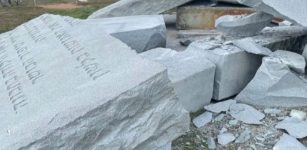 Georgia Guidestones Damaged By An Explosive Device – By Whom And Why?
News | Jul 7, 2022
Georgia Guidestones Damaged By An Explosive Device – By Whom And Why?
News | Jul 7, 2022 -
 Ancient Wooden Slips Inform About China’s First Emperor’s Search For Mysterious Elixir Of Immortality
Archaeology | Dec 26, 2017
Ancient Wooden Slips Inform About China’s First Emperor’s Search For Mysterious Elixir Of Immortality
Archaeology | Dec 26, 2017 -
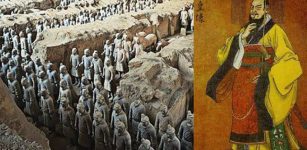 Mysterious History Of Qin Shi Huang – First Emperor Of China
Featured Stories | Jan 17, 2016
Mysterious History Of Qin Shi Huang – First Emperor Of China
Featured Stories | Jan 17, 2016 -
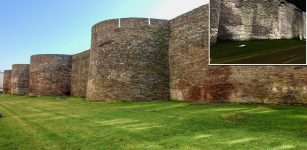 Walls Of Lugo: Finest Example Of Late Roman Fortifications – Stands The Test Of Time
Featured Stories | Sep 22, 2022
Walls Of Lugo: Finest Example Of Late Roman Fortifications – Stands The Test Of Time
Featured Stories | Sep 22, 2022 -
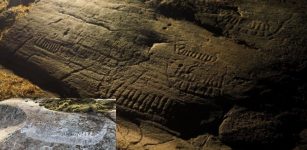 Ancient Petroglyph Code Cracked By Archaeological Explorers
News | Apr 10, 2020
Ancient Petroglyph Code Cracked By Archaeological Explorers
News | Apr 10, 2020 -
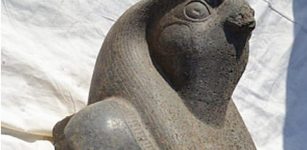 Colossus Of Standing Falcon-Headed God Horus Unearthed In Egypt’s Luxor
Archaeology | Jan 6, 2020
Colossus Of Standing Falcon-Headed God Horus Unearthed In Egypt’s Luxor
Archaeology | Jan 6, 2020 -
 A 2,500-Year-Old Planned City In Tarighat, Chhattisgarh, India
Civilizations | Oct 8, 2014
A 2,500-Year-Old Planned City In Tarighat, Chhattisgarh, India
Civilizations | Oct 8, 2014 -
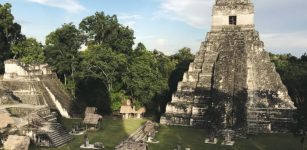 Ancient Maya Reservoirs Contained Toxic Pollution – New Study
Archaeology | Jun 27, 2020
Ancient Maya Reservoirs Contained Toxic Pollution – New Study
Archaeology | Jun 27, 2020 -
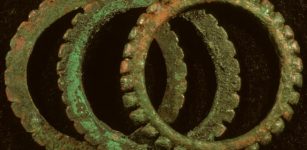 Metal Artifacts In Southeast Asia Archaeological Theory – Challenged
Archaeology | Jul 31, 2021
Metal Artifacts In Southeast Asia Archaeological Theory – Challenged
Archaeology | Jul 31, 2021 -
 Extremely Rare English Medieval Shipwreck With Fascinating Cargo Discovered In Poole Bay, Dorset
Archaeology | Jul 23, 2022
Extremely Rare English Medieval Shipwreck With Fascinating Cargo Discovered In Poole Bay, Dorset
Archaeology | Jul 23, 2022 -
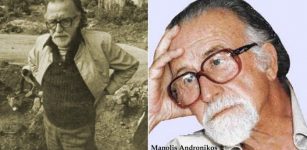 On This Day In History: Greek Archaeologist Manolis Andronikos Who Discovered Tomb of Philip II of Macedon, Was Born – On Oct 23, 1919
News | Oct 23, 2016
On This Day In History: Greek Archaeologist Manolis Andronikos Who Discovered Tomb of Philip II of Macedon, Was Born – On Oct 23, 1919
News | Oct 23, 2016 -
 Two-Story Houses With Balconies Unearthed In Ancient City Of Pompeii, Italy
Archaeology | May 18, 2018
Two-Story Houses With Balconies Unearthed In Ancient City Of Pompeii, Italy
Archaeology | May 18, 2018

